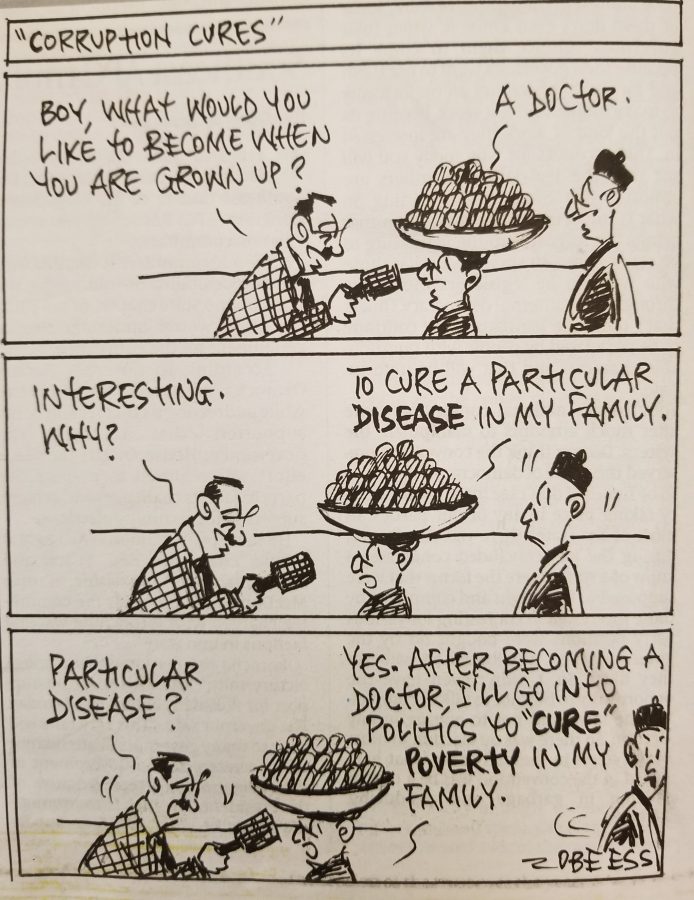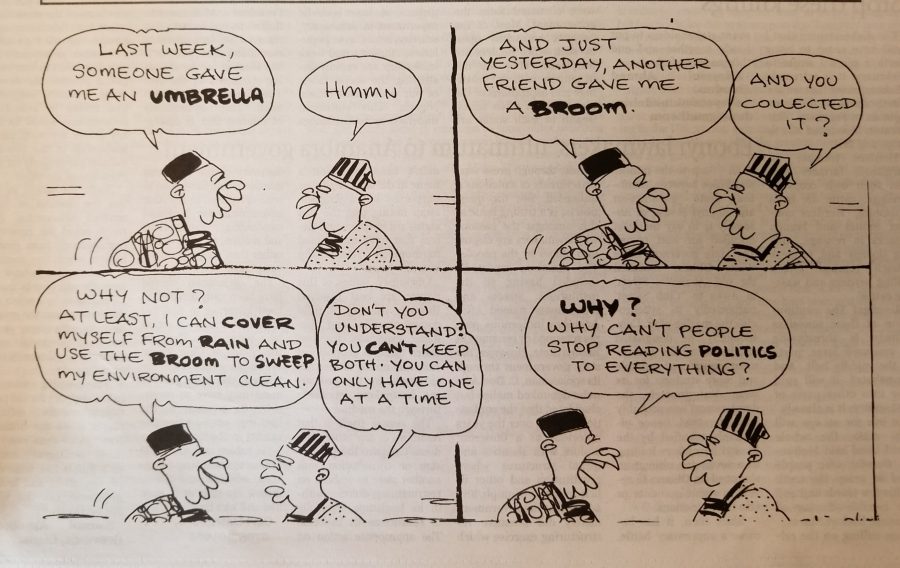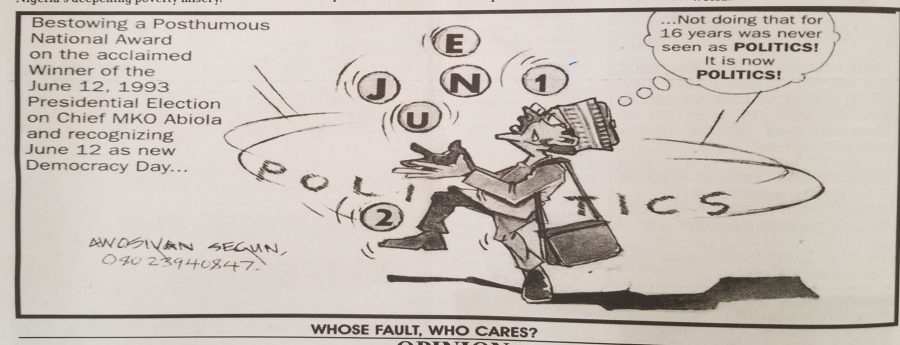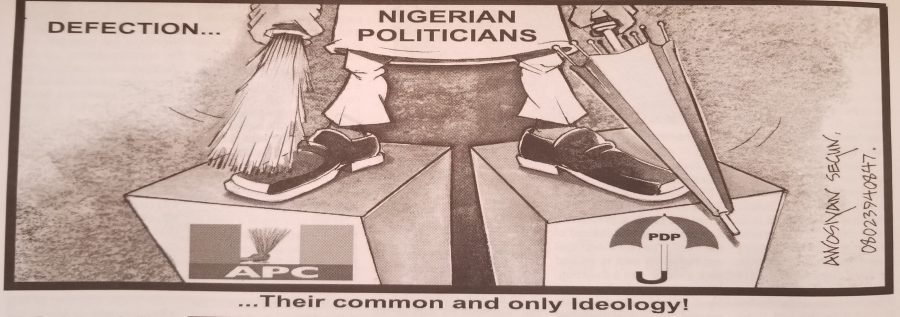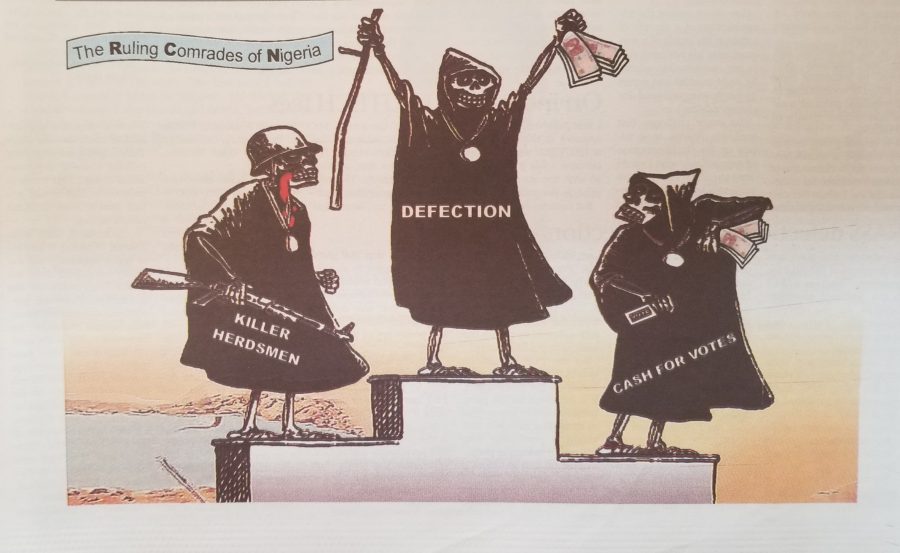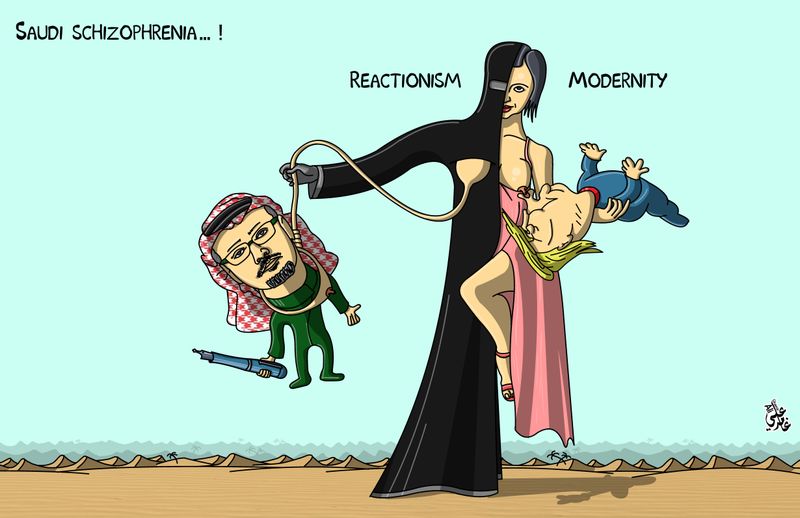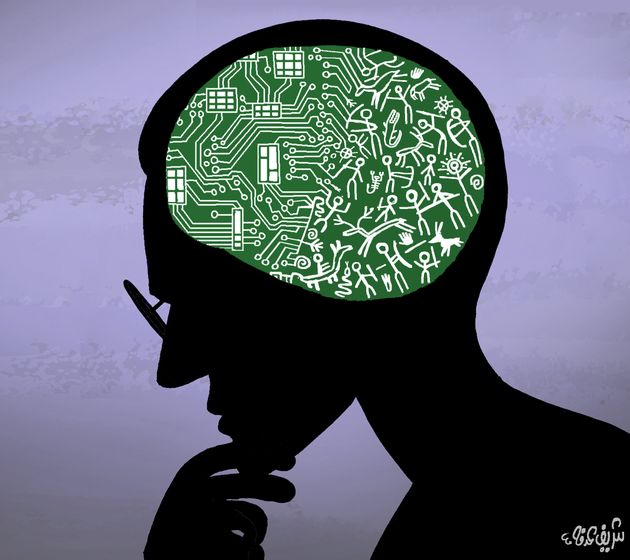Tag Archives: politics
Adeeko Olusegun – The Ruling Comrades of Nigeria
An average Nigerian would probably tell you that the killer herdsmen are the toughest menace they know that is threatening the country’s democracy. In 2018 alone, there has been more stories of herdsmen wrecking havoc in wanton fashion accross the country.
Here, however, Adéẹk̀ọ́ Olùṣẹǵun thinks otherwise. He highlights the most pressing challenges in Nigeria. He calls them the Ruling Comrades of Nigeria. They are KILLER HERDSMEN, DEFECTION, CASH FOR VOTES. For one, his choice of the word “comrade” is quite significant for meaning. It shows that these challenges work hand in hand.
Perhaps the most symbolic feature of this piece lies in Adéẹk̀ọ́’s hierarchical arrangement of the comrades. He places them on a medal podium. Killer Herdsmen to the left, Defection at the center, and Cash for Votes to the right. Of the three, DEFECTION is the winner, followed by Killer Herdsmen with a raised platform and Cash for Votes as the last. Adéẹk̀ọ́ seems to be suggesting that the challenges of killer herdsmen and cash for votes are not as brutal and threatening as political defections.
It’s also instructive to point out the fact that only both election- or politics-related Defection and Cash for Votes involve money. This is not strange, money is a huge factor in Nigerian politics. Many politicians run for office because of the juicy remunerations that come with being a public office-holder. And people come out to cast their vote because of the hope of being paid by politicians.
It is also important to point out that both Killer Herdsmen and Cash for Votes look up to Defection. Overall, while these comrades are related, Adéẹk̀ọ́ believes defections among politicians is threatening the democracy of the country. It is in a class of its own.
Awosiyan Segun – Whose Fault, Who Cares?
Late Chief MKO Abiola was “the acclaimed winner of the June 12, 1993, presidential election.” The election was annulled by the then military ruler of Nigeria, President Badamosi Babangida. Nonetheless, to many, the election is still considered to be the most free and fairest election in contemporary Nigerian history. In fact, since the annulment, various pro-democracy groups and Nigerians have been clamoring for government’s recognition of Chief Abiola’s mandate.
On June 6, 2018, President Muhammadu Buhari declared that May 29, 2018, would be the last Democracy Day to be celebrated that day. Instead, he noted that starting from 2019, June 12 will become Democracy Day.
Seeing that this decision was made few months away from the 2019 elections, many Nigerians believe Mr. Buhari’s decision was made based on political permutations. One of the arguments made by skeptics is that he hopes to use his declaration to bait the support of voters in the South Western states of Nigeria. The late Chief Abiola was from one of those states, Ogun.
In this cartoon, Awosiyan Segun reflects on the possible rationale behind Mr. Buhari’s decision and the biased thinking of the skeptics. According to Awosiyan, not honoring the late Chief “for 16 years was never seen as POLITICS! It is now POLITICS!” (Emphasis is included by the cartoonist.)


